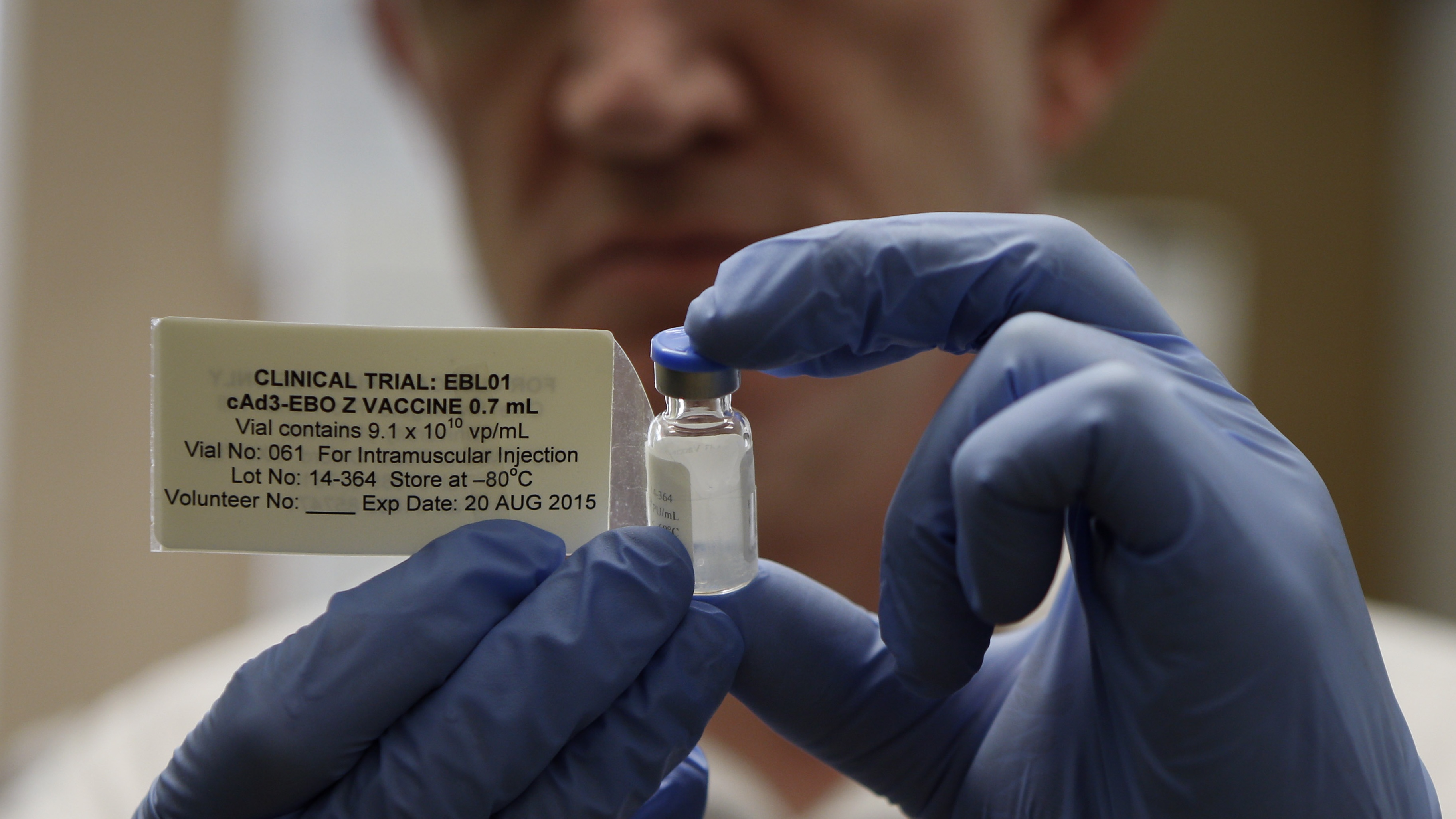Coronavirus: how will the Oxford vaccine win regulators’ approval?
A total of three Covid-19 jabs have been declared safe and effective - but none are cleared yet for public use

A free daily email with the biggest news stories of the day – and the best features from TheWeek.com
You are now subscribed
Your newsletter sign-up was successful
The results of late-stage trials that show the Covid-19 vaccine developed by Oxford University and AstraZeneca is at least 70% effective mark a big step forward - but not the last before the jab can be approved by UK health regulators.
First, the full data from Phase 3 will have to be published in a peer-reviewed journal, supplementing the summary announced earlier this week.
As with preliminary results from the Moderna and Pfizer vaccines, the initial statement “gave efficacy rates [but] left out details that would have helped outside researchers independently assess the data”, says The New York Times.
The Week
Escape your echo chamber. Get the facts behind the news, plus analysis from multiple perspectives.

Sign up for The Week's Free Newsletters
From our morning news briefing to a weekly Good News Newsletter, get the best of The Week delivered directly to your inbox.
From our morning news briefing to a weekly Good News Newsletter, get the best of The Week delivered directly to your inbox.
Medical regulators will want to know exactly how many coronavirus infections - and how many serious infections - were reported in each trial group, including those given a placebo, in order to calculate each vaccine’s efficacy rate for themselves.
This should not take long. Even before the recent trial results announcements, the drug companies had been passing their data to health regulators for “rolling review” in an attempt to accelerate the process.
Dr June Raine, chief executive of the UK’s Medicines and Healthcare products Regulatory Agency (MHRA), has said that her organisation will “aim to make a decision in the shortest time possible, without compromising the thoroughness of our review”.
However, the process won’t end when approval comes, which is likely to be next month. “The MHRA is also involved in pharmacovigilance - monitoring the safety of all medicines throughout their marketed life,” says The Guardian.
A free daily email with the biggest news stories of the day – and the best features from TheWeek.com
That involves looking out for adverse reactions that may be too rare to show up in trial groups of 20,000 to 30,000 people, but that may affect a significant number of people when hundreds of millions have received the vaccine.
This risk could be reduced by extending the trial period - the meningitis B vaccine took 20 years to gain approval - but the potential dangers of vaccinating has to be weighed against those of not vaccinating.
The “dilemma” is unavoidable, says Nature. Even the impulse to protect trial participants given the placebo comes with drawbacks.
“If too many people cross over to the vaccine group, the companies might not have enough data to establish long-term outcomes, such as safety, how long vaccine protection lasts and whether the jab prevents infection or just the disease,” the journal explains.
Holden Frith is The Week’s digital director. He also makes regular appearances on “The Week Unwrapped”, speaking about subjects as diverse as vaccine development and bionic bomb-sniffing locusts. He joined The Week in 2013, spending five years editing the magazine’s website. Before that, he was deputy digital editor at The Sunday Times. He has also been TheTimes.co.uk’s technology editor and the launch editor of Wired magazine’s UK website. Holden has worked in journalism for nearly two decades, having started his professional career while completing an English literature degree at Cambridge University. He followed that with a master’s degree in journalism from Northwestern University in Chicago. A keen photographer, he also writes travel features whenever he gets the chance.
-
 Switzerland could vote to cap its population
Switzerland could vote to cap its populationUnder the Radar Swiss People’s Party proposes referendum on radical anti-immigration measure to limit residents to 10 million
-
 Political cartoons for February 15
Political cartoons for February 15Cartoons Sunday's political cartoons include political ventriloquism, Europe in the middle, and more
-
 The broken water companies failing England and Wales
The broken water companies failing England and WalesExplainer With rising bills, deteriorating river health and a lack of investment, regulators face an uphill battle to stabilise the industry
-
 A Nipah virus outbreak in India has brought back Covid-era surveillance
A Nipah virus outbreak in India has brought back Covid-era surveillanceUnder the radar The disease can spread through animals and humans
-
 Trump HHS slashes advised child vaccinations
Trump HHS slashes advised child vaccinationsSpeed Read In a widely condemned move, the CDC will now recommend that children get vaccinated against 11 communicable diseases, not 17
-
 A fentanyl vaccine may be on the horizon
A fentanyl vaccine may be on the horizonUnder the radar Taking a serious jab at the opioid epidemic
-
 Health: Will Kennedy dismantle U.S. immunization policy?
Health: Will Kennedy dismantle U.S. immunization policy?Feature ‘America’s vaccine playbook is being rewritten by people who don’t believe in them’
-
 How dangerous is the ‘K’ strain super-flu?
How dangerous is the ‘K’ strain super-flu?The Explainer Surge in cases of new variant H3N2 flu in UK and around the world
-
 Vaccine critic quietly named CDC’s No. 2 official
Vaccine critic quietly named CDC’s No. 2 officialSpeed Read Dr. Ralph Abraham joins another prominent vaccine critic, HHS Secretary Robert F. Kennedy Jr.
-
 This flu season could be worse than usual
This flu season could be worse than usualIn the spotlight A new subvariant is infecting several countries
-
 Covid-19 mRNA vaccines could help fight cancer
Covid-19 mRNA vaccines could help fight cancerUnder the radar They boost the immune system